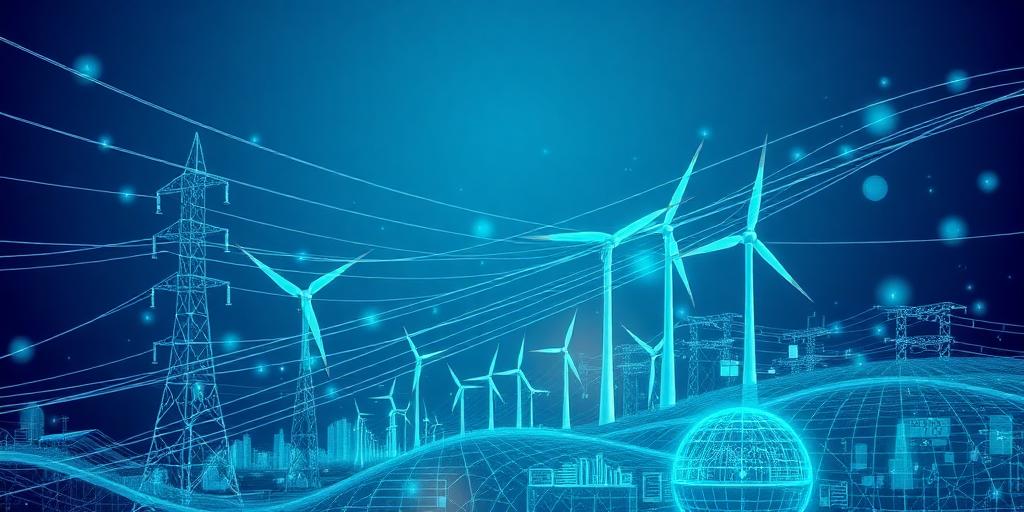The convergence of the Internet of Things (IoT) with the energy sector marks a transformative epoch, fundamentally reshaping how energy is generated, distributed, and consumed. This integration is not merely an incremental upgrade but a paradigm shift, enabling unprecedented levels of efficiency, reliability, and sustainability across the entire energy value chain. By embedding sensors, software, and connectivity into physical objects, IoT facilitates the collection and exchange of data, offering a granular view into operational dynamics that was previously unattainable. This authoritative analysis delves into the multifaceted impact of IoT on this critical industry.
Revolutionizing Grid Infrastructure with Smart Grids
One of the most profound impacts of IoT is its role in the evolution of traditional power grids into smart grids. IoT devices, including smart meters, sensors embedded in transformers, and intelligent control systems, enable real-time monitoring and dynamic management of electricity flow. This capability allows utilities to identify and respond to outages more rapidly, optimize load balancing, and reduce transmission losses. The implementation of smart grid technology benefits both providers and consumers by enhancing grid resilience and operational efficiency. Furthermore, smart grids are crucial for integrating diverse and distributed energy sources, such as solar and wind, into the main network seamlessly, ensuring grid stability.
Optimized Energy Management and Consumption
IoT empowers both industrial and residential consumers with advanced IoT energy management solutions. Smart thermostats, intelligent lighting systems, and connected appliances provide users with detailed insights into their energy usage patterns, facilitating informed decisions to reduce consumption and costs. For businesses, IoT sensors can monitor energy expenditure of machinery and facilities in real-time, identifying inefficiencies and enabling proactive adjustments. This level of granular data not only drives cost savings but also contributes significantly to environmental sustainability by minimizing wasted energy.
Enhancing Reliability through Predictive Maintenance
The energy sector relies heavily on robust infrastructure, where equipment failure can lead to substantial economic losses and widespread disruptions. IoT-enabled predictive maintenance energy strategies offer a powerful solution. By deploying sensors on critical assets like turbines, pipelines, and transmission lines, operators can continuously monitor their condition, detecting anomalies and predicting potential failures before they occur. This proactive approach minimizes unscheduled downtime, extends the lifespan of equipment, and significantly reduces maintenance costs, thereby bolstering the overall reliability and safety of energy operations. This shift from reactive to predictive maintenance represents a substantial operational advancement.
Seamless Integration of Renewable Energy Sources
The global push towards decarbonization necessitates a greater reliance on renewable energy. IoT plays a pivotal role in optimizing the performance and integration of these intermittent sources. Sensors on solar panels and wind turbines collect data on environmental conditions and energy output, allowing for intelligent adjustments to maximize generation. Furthermore, IoT facilitates the management of energy storage systems, ensuring that excess renewable energy can be stored and deployed when needed, thereby addressing the variability inherent in renewable generation. This capability is essential for achieving a stable and sustainable energy mix.
Addressing Challenges and Charting the Future
While the benefits are substantial, the pervasive adoption of IoT in the energy sector also presents challenges, notably in cybersecurity, data privacy, and the sheer volume of data generated. Robust security protocols and advanced data analytics capabilities are imperative to mitigate these risks. Despite these hurdles, the future trajectory of IoT in energy is clear: continued innovation will lead to increasingly sophisticated real-time energy monitoring systems, more autonomous grids, and a further blurring of lines between energy generation and consumption. The digital transformation energy industry is well underway, with IoT serving as its primary catalyst.
In conclusion, the impact of IoT on the energy sector is transformative and far-reaching. It is driving unparalleled efficiencies, enhancing grid reliability, empowering consumers, and accelerating the transition to a sustainable energy future. As technology continues to evolve, IoT will undoubtedly remain at the forefront of innovation, powering the next generation of energy solutions and ensuring a more resilient and sustainable global energy landscape.









